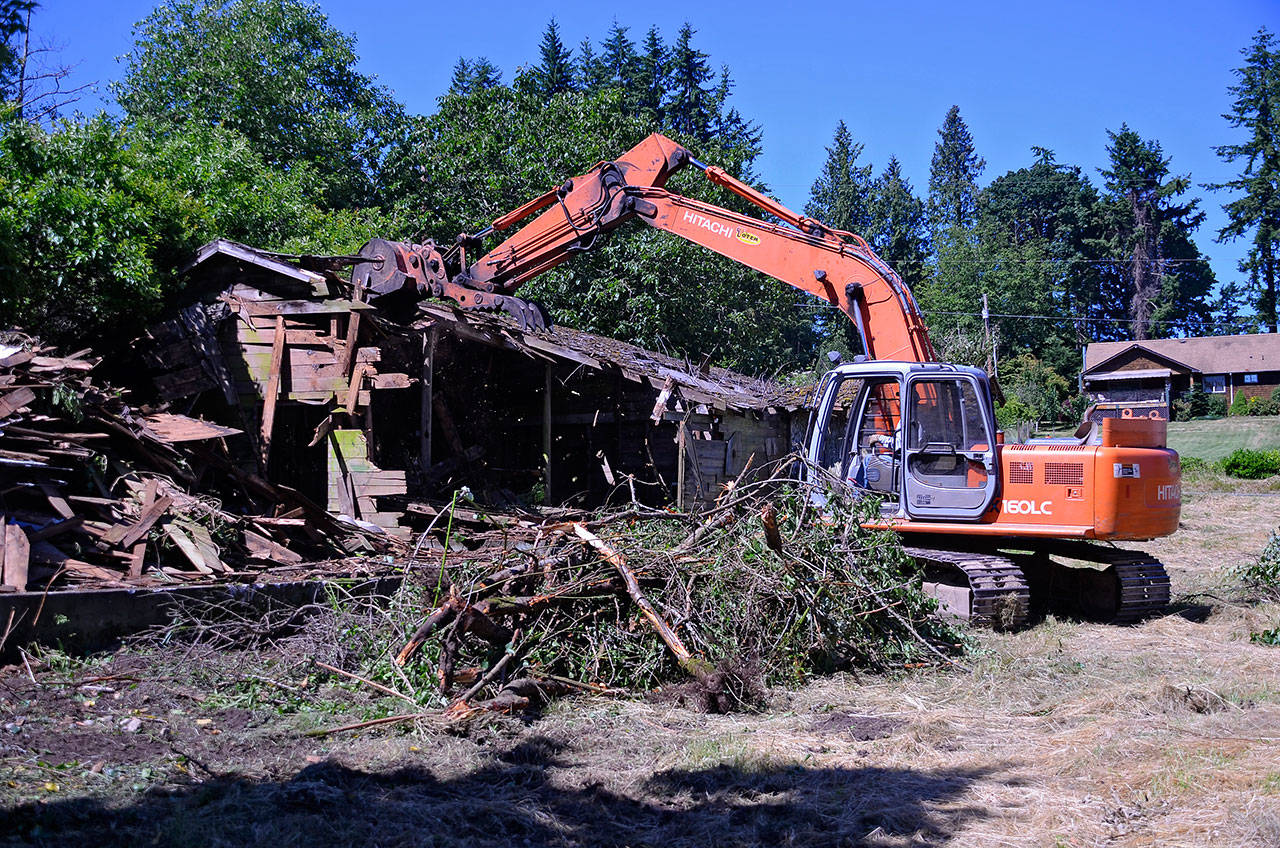A chapter of Freeland’s agricultural and pioneering past closed this week with the demolition of an old chicken coop, a building some considered an area landmark.
Located on the corner lot of Stewart Road and Myrtle Avenue, the long rectangular structure was built in the 1930s by the Lieseke family, which arrived in Freeland in 1900 and belonged to the Free Land Association, the Socialist group that helped found the area more than 100 years ago. The building fell into disrepair long ago and was slowly being consumed by blackberry bushes.
It was torn down Wednesday and Thursday for what were reportedly safety concerns.
Many who live in the area and are familiar with the building said its destruction was likely necessary, but that it will be missed all the same.
“For us, it’s a local landmark and it’s sad, but it was time,” said Rob Mattern, who has lived next door to the old chicken coop for more than 20 years. “It was starting to collapse in on itself.”
Attempts the reach to property’s current owners were unsuccessful for this story.
Multiple sources confirmed, however, that the building was recently occupied by one or more homeless people. Their residence in the structure was discovered after the blackberry bushes were trimmed back. Police emptied the building, but there were concerns that someone could be injured if the building collapsed.
The chicken coop was built in the 1930s by Ernest Lieseke. He arrived in Freeland at the age of 1 in 1900, supposedly in a covered wagon. His father was William Lieseke, a member of the Free Land Association.
The building hasn’t been owned by a Lieseke in decades, but descendants who grew up on the property still call South Whidbey home. They also were sad to hear of the building’s destruction.
“The last chicken house, I hated to see it go myself,” said Tim Lieseke, the son of Ernest Lieseke. “I had a lot of fun in there when I was a kid.”
As the family history goes, the family property once consisted of about eight structures, including a house. The first one was lost to a fire, said Tim Lieseke, and another rebuilt a short time later, sometime around 1910.
The coop was used commercially until the 1940s when it was converted for use as storage. Neither Tim Lieseke nor his brother, Ernie Lieseke of Rice, said they remember a time when it was actually used to raise chickens.
“When I came around there were no animals left, just orchards,” Ernie Lieseke said.
“Pears, plum, apples, nectarines, there was everything,” he said.
Many of those trees are still there, and are harvested by neighbors.
The Lieseke brothers said that though the farm operated commercially at one point, it was never formally named. Like many early homesteads, it was simply “home.”
The property has had at least two other owners since the Liesekes, one of which used the old coop for automotive repair.



